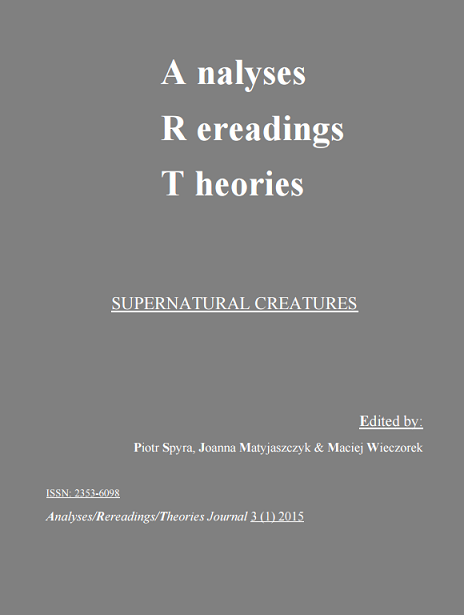Of Monsters, Myths and Marketing: The Case of the Loch Ness Monster
DOI:
https://doi.org/10.18778/2353-6098.3.02Keywords:
Loch Ness, monster, Scotland, myth, marketingAbstract
This paper examines the status of the Loch Ness Monster within a diverse body of literature relating to Scotland. Within cryptozoology this creature is considered as a source of investigation, something to be taken seriously as a scientific or quasi-scientific object to be studied and known, particularly in light of its elusive nature. In terms of mythology the creature is bound up with Scottish cultural identifications through references to a rugged wilderness landscape and to iconic, if stereotypical, images of tartanry, bygone castles, and folklore. Both sets of ideas have been used with great effect to generate a diversity of literature: from books and scientific papers that chronicle the sightings and “hunt” for the creature as well the possible case for it being a line of long-surviving plesiosaurs, through to children’s literature that deals with the mythic element that is so often used to appeal to childhood imagination, and on to a plethora of tourist marketing booklets and brochures.
References
Barthes, Roland. Mythologies. London: Jonathan Cape, 1972. Print.
Google Scholar
Baudrillard, Jean. Simulacra and Simulation. Trans. Sheila Faria Glaser. Ann Abor: U of Michigan P, 1994. Print.
Google Scholar
DOI: https://doi.org/10.3998/mpub.9904
Dendle, Peter. “Cryptozoology in the Medieval and Modern Worlds: Research Paper.” Folklore 117.2 (2006): 190-206. Print.
Google Scholar
DOI: https://doi.org/10.1080/00155870600707888
Newton, Michael. Hidden Animals: A Field Guide to Batsquatch, Chupacabra, and Other Elusive Creatures. Santa Barbara: ABC-CLIO, 2009. Print.
Google Scholar
Radford, Benjamin, and Joe Nickell. Lake Monster Mysteries: Investigating the World’s Most Elusive Creatures. Kentucky: UP of Kentucky, 2006. Print.
Google Scholar
Walsham, Alexandra. “The Reformation and ‘the Disenchantment of the World’ Reassessed.” The Historical Journal 51.02 (2008): 497-528. Print.
Google Scholar
DOI: https://doi.org/10.1017/S0018246X08006808
Downloads
Published
How to Cite
Issue
Section
License

This work is licensed under a Creative Commons Attribution-NonCommercial-NoDerivatives 3.0 Unported License.









